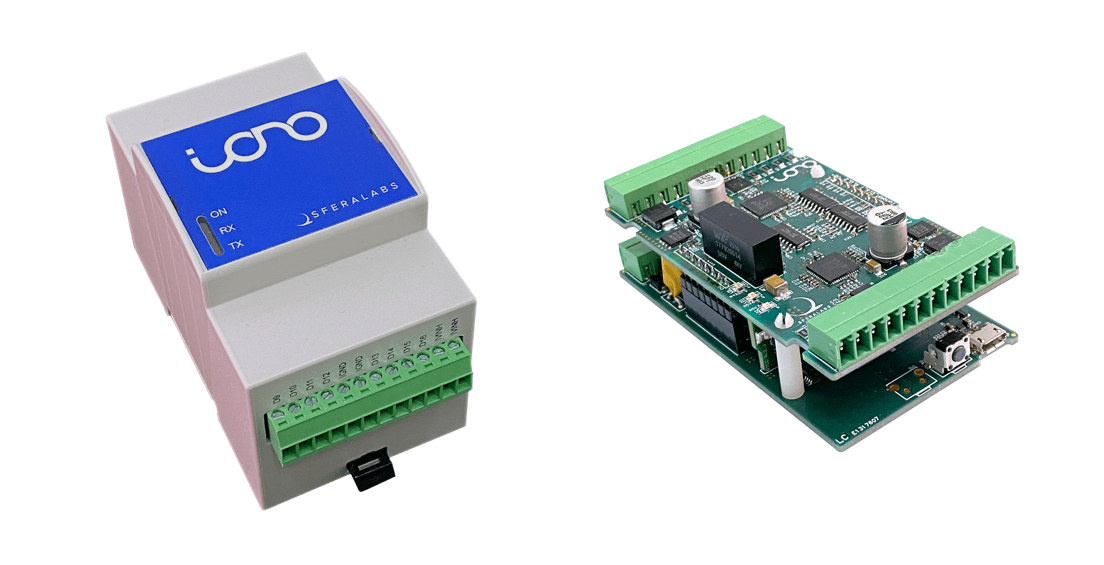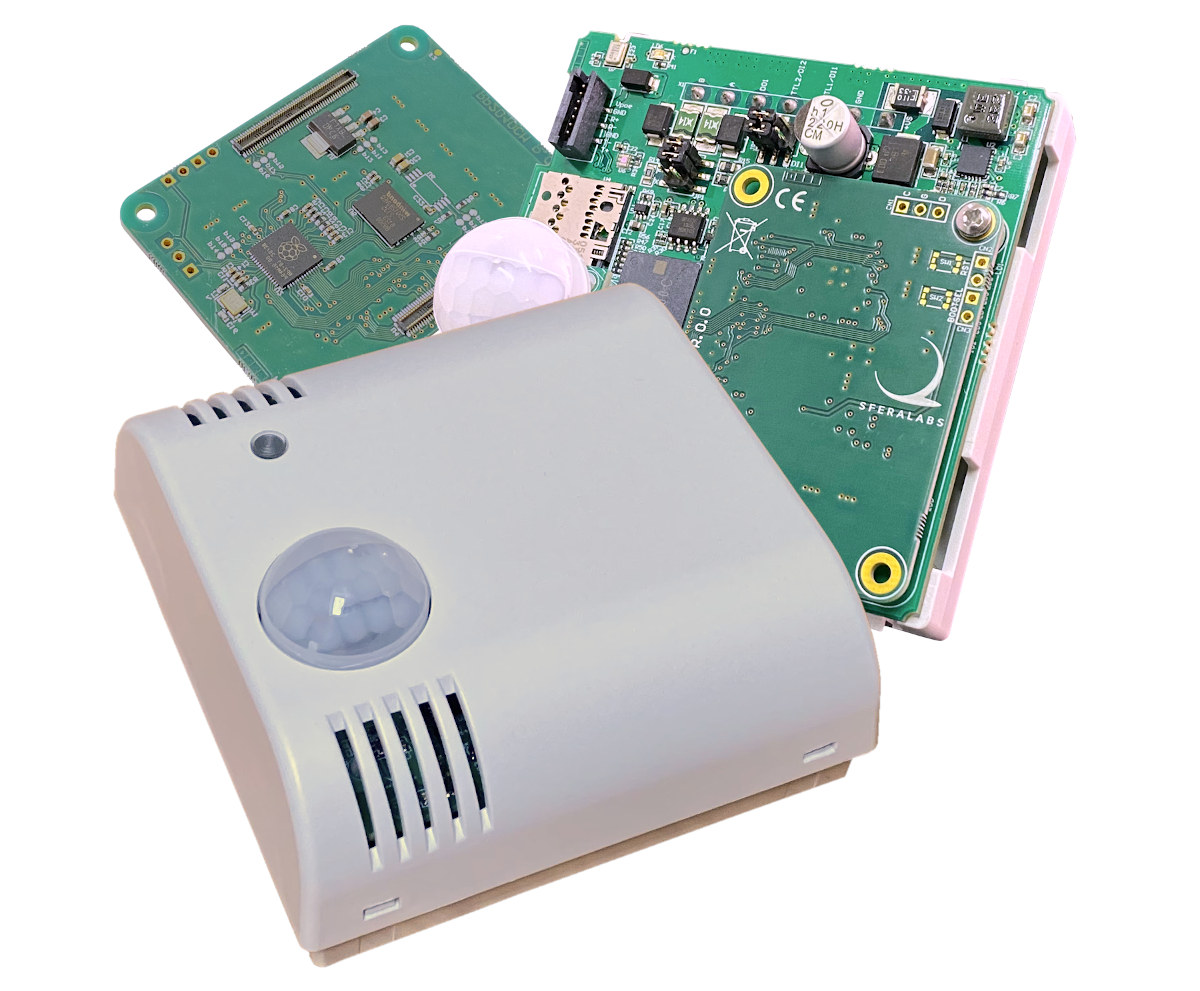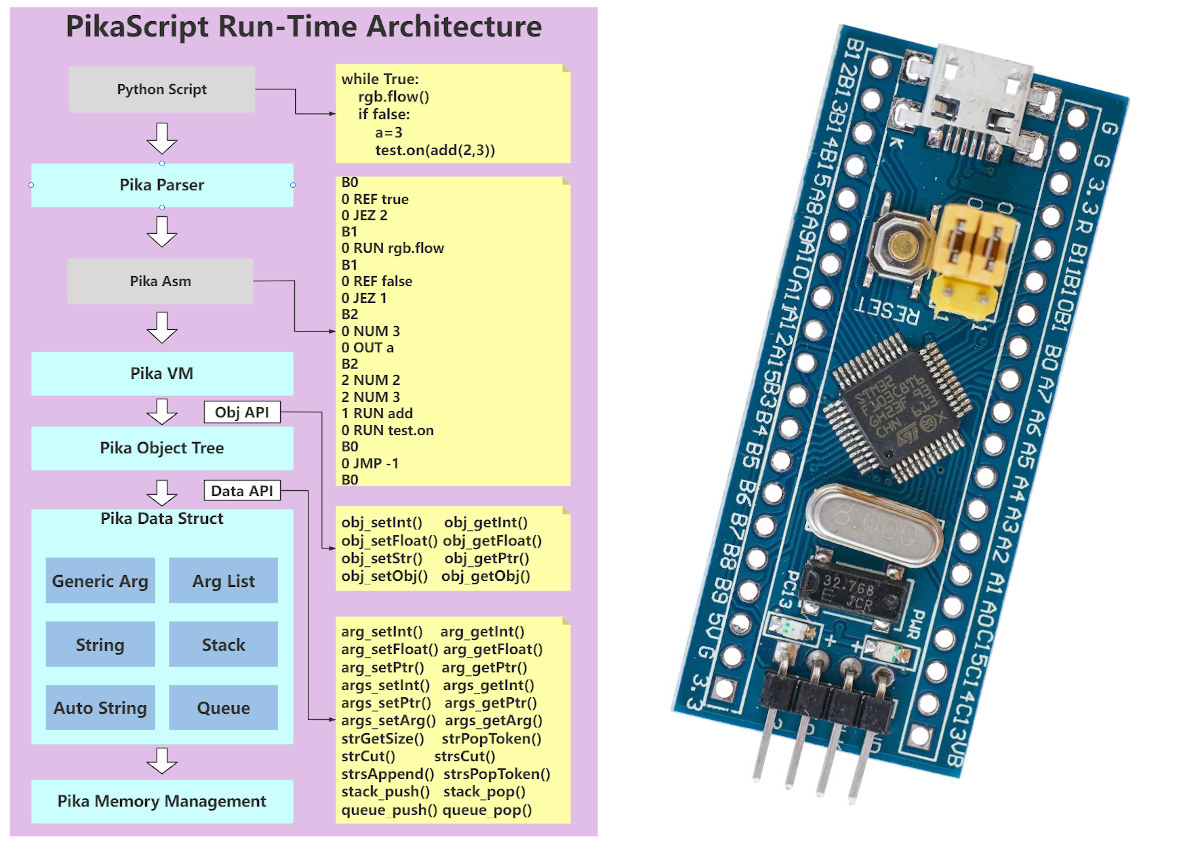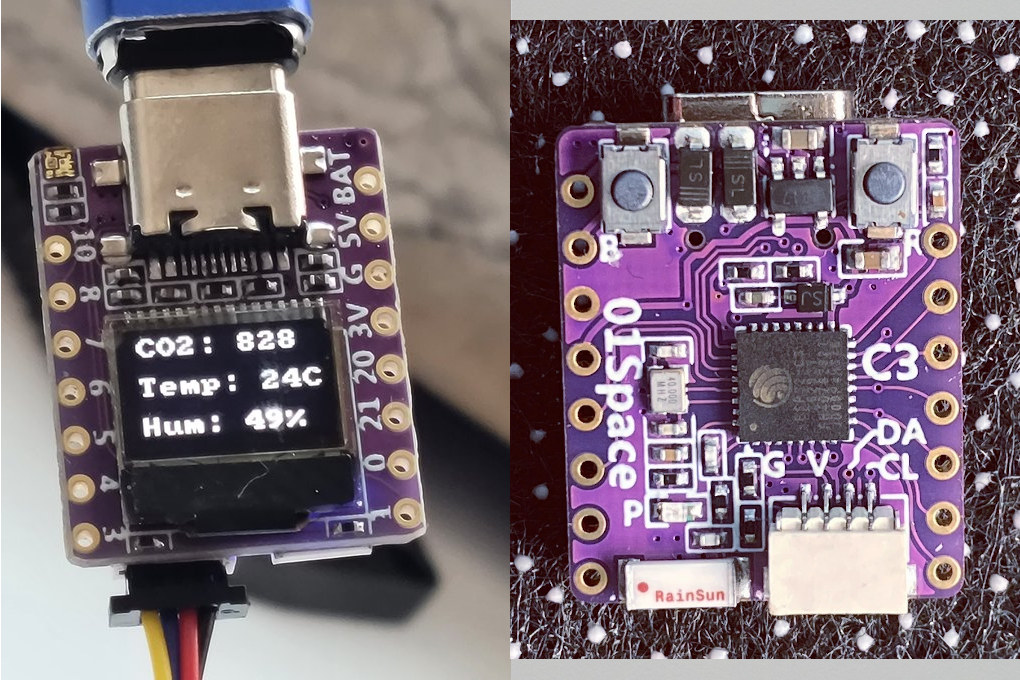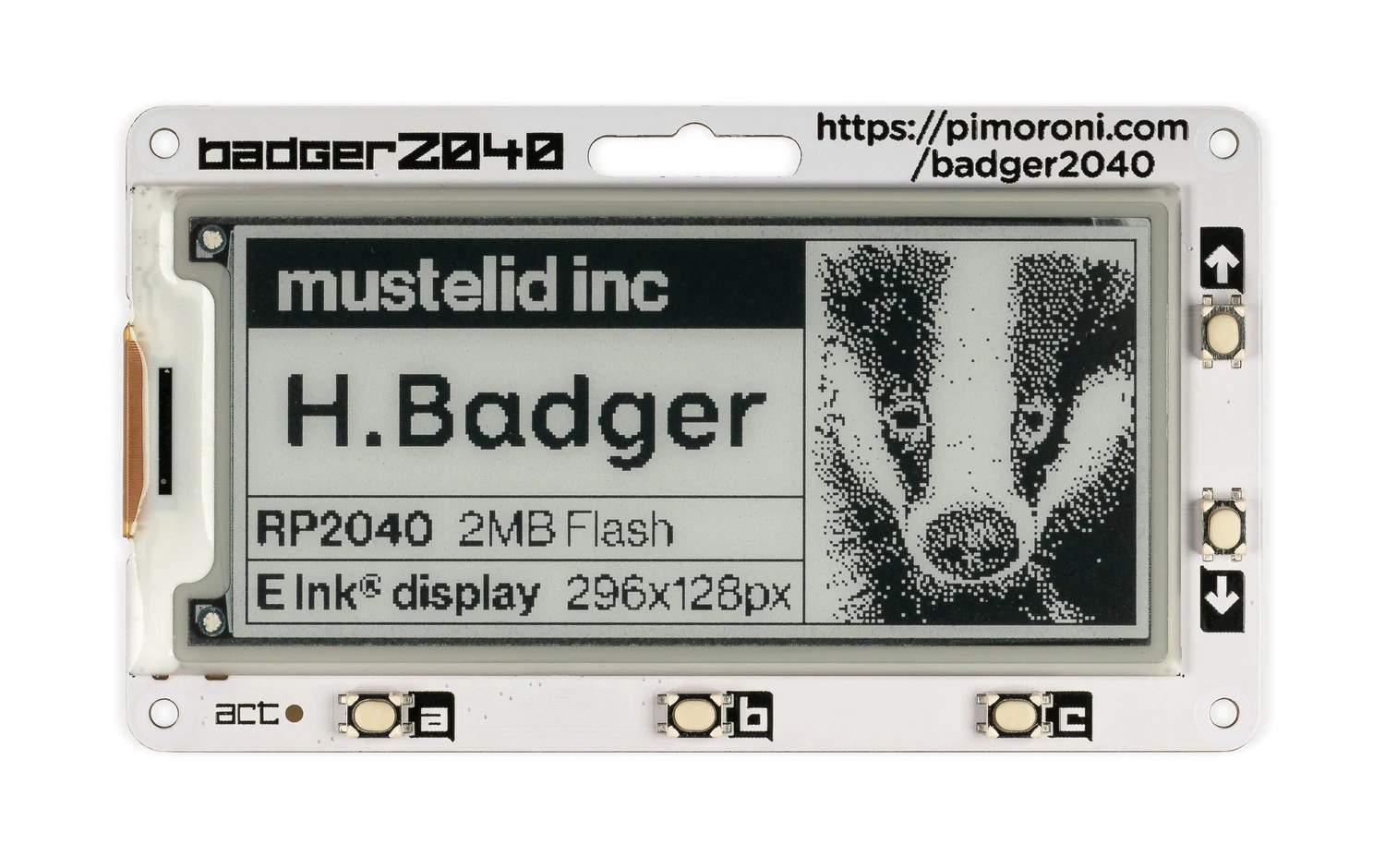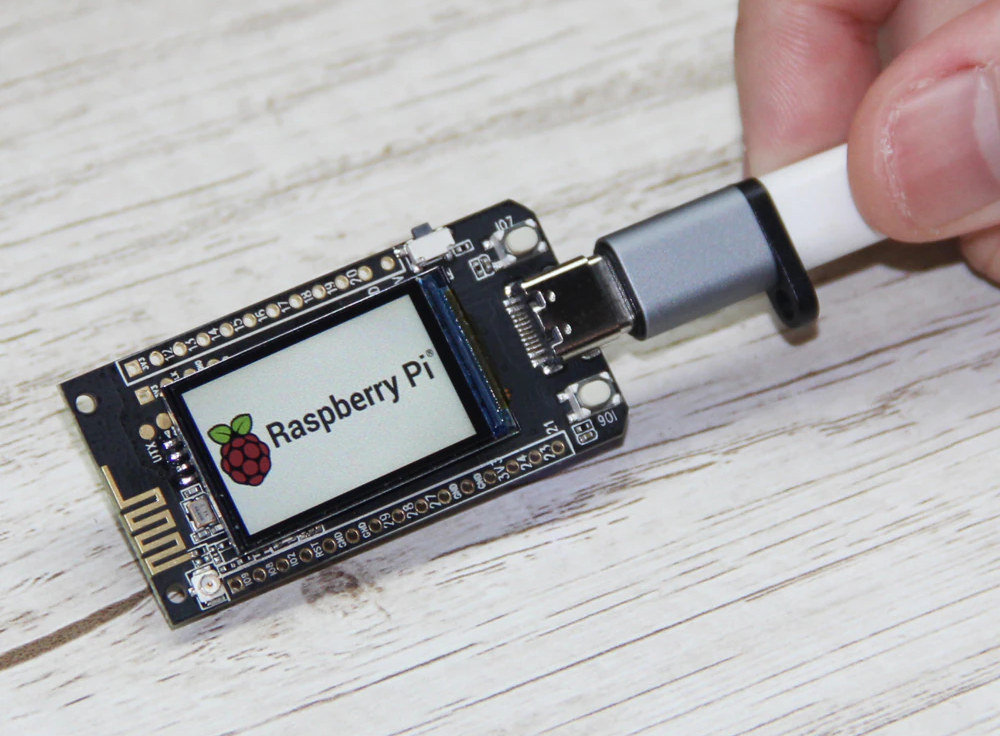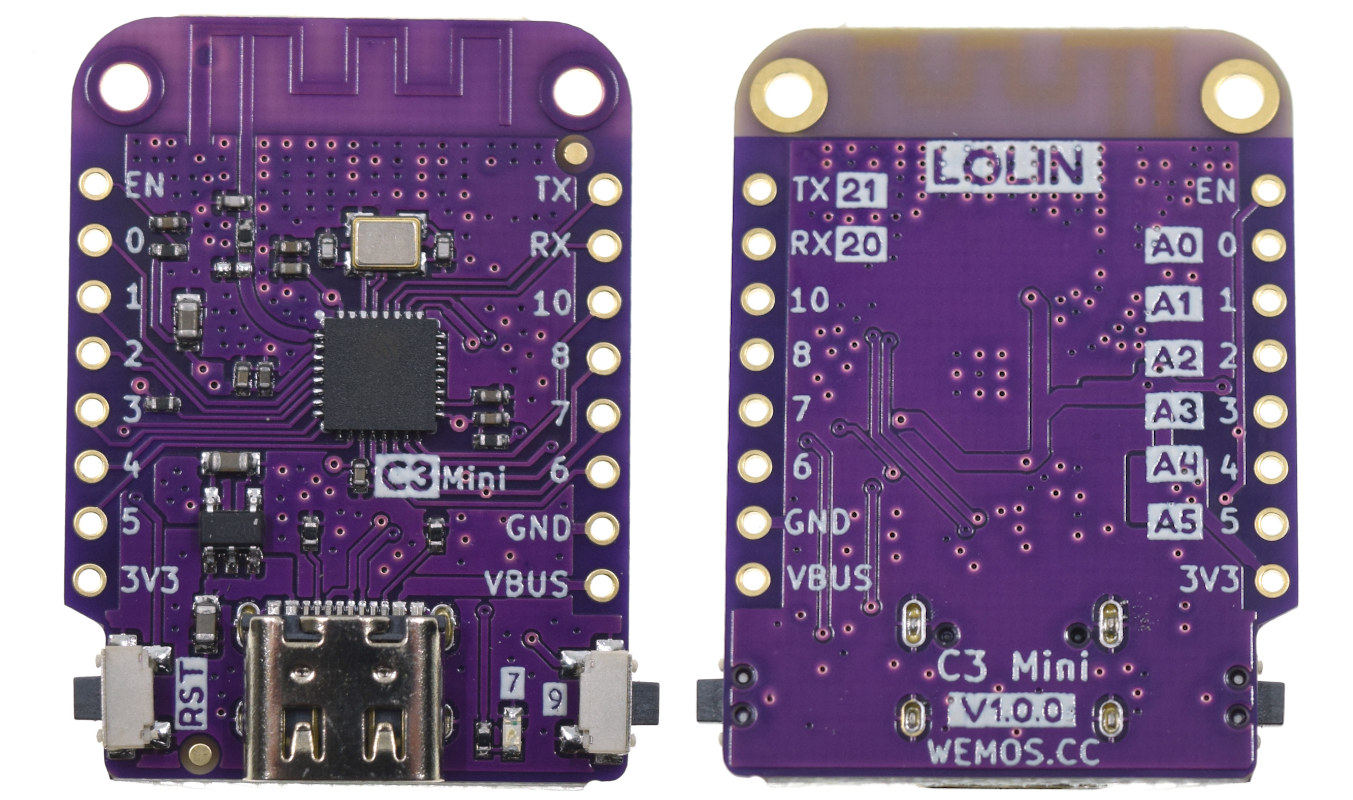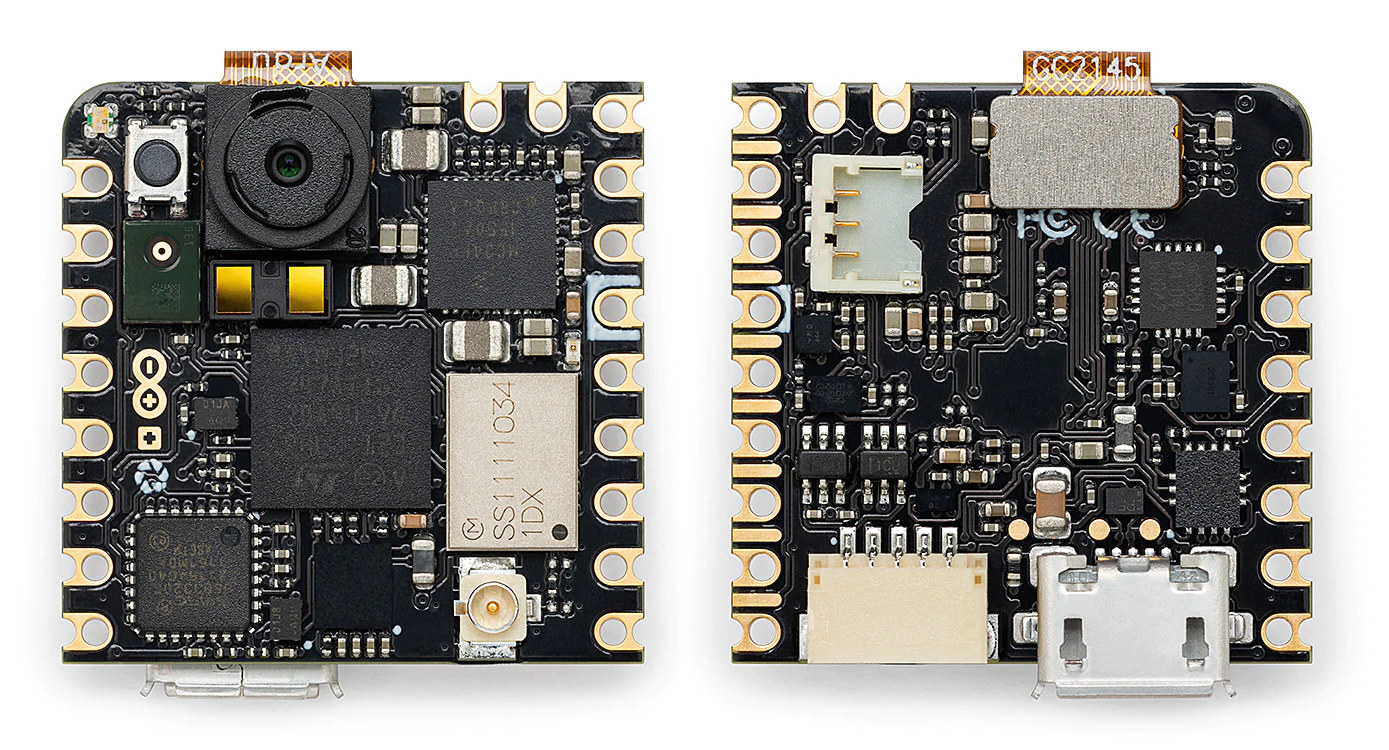Sfera Labs has launched another Raspberry Pi RP2040-based hardware platform with the Iono RP D16 industrial IO module following the Exo Sense RP multi-sensor module we covered last month. The Iono RP D16 module provides sixteen digital 24V I/O lines, an RS-485 serial interface, a wide range 12-28V power supply input, and its DIN-rail case enables installation in electrical cabinets and automation control systems. Iono RP D16 specifications: MCU – Raspberry Pi RP2040 dual-core Arm Cortex-M0+ microcontroller @ 133MHz with 264kB on-chip SRAM Storage – 16MB SPI flash Inputs/Outputs via terminal blocks Up to 16x 24V 640mA outputs driven by high-side switches that can also be configured as push-pull drivers for high-speed switching (via MAX14912 chips) Up to 16x 24V IEC 61131-2 compliant current-sinking inputs (via MAX22190 chips) 4x TTL level I/Os (1-Wire, I2C, Wiegand support) Serial – RS-485 interface to the RP2040 serial lines via terminal block with electrostatic […]
Exo Sense RP – A Raspberry Pi RP2040-based multi sensor module
Sfera Labs Exo Sense RP is a multi-sensor module with a Raspberry Pi RP2040 microcontroller and various sensors to report temperature, humidity, air quality (VOC), light intensity, audio, and motion. The module can work as a standalone unit but can also communicate with a host through RS485 and USB interfaces, and supports expansion via surge-protected digital inputs and outputs. The Exo Sense RP is designed for indoor residential and commercial applications such as environmental monitoring and data logging, people and assets tracking, room management, access control, and more. Exo Sense RP specifications: MCU – Raspberry Pi RP2040 dual-core Arm Cortex M0+ @ 133 MHz with 264KB SRAM Storage – 16MB flash memory Communication ports RS485 half-duplex up to 115200 bps, with surge protection Micro USB 1.1 Type-B connector Sensors Sensirion SHT40 temperature and humidity sensor Sensirion SGP40 air quality (VOC) sensor Texas Instruments OPT3001 light intensity sensor TDK ICS-43432 digital […]
PikaScript – A lightweight Python implementation that runs on STM32 and other low-end MCUs
PikaScript is an ultra-lightweight Python engine that can run on microcontrollers with as little as 4KB of RAM and 32KB of Flash, while the more popular MicroPython requires at least 256kB of code space and 16kB of RAM. PikaScript was initially developed to run on STM32G030C8 and STM32F103C8 MCUs, meaning, for example, it works on the BluePill board, but it has also been ported to other platforms like WCH CH582 RISC-V MCU, WinnerMicro W806 C-Sky microcontroller, as well as other like Raspberry Pi RP2040, ESP32-C3, etc… but those are not quite as well supported with some features missing. PikaScript also permits the binding C function to a Python module through Pika Pre-compiler. PikaScript can run bare metal on the microcontroller, but also supports real-time operating systems such as RT-Thread and VSF (Versaloon Software Framework), as well as Linux. Just like MicroPython, it’s using a subset of Python 3, but I’d […]
“ESP32-C3-0.42LCD” is a tiny WiFi & BLE IoT board with 0.42-inch display, Qwiic connector
01Space “ESP32-C3-0.42LCD” is a small (23.5 x 18 mm) board equipped with ESP32-C3 RISC-V WiFi and Bluetooth microcontroller, a 0.42-inch display, and a Qwicc I2C connector to easily add modules such as sensors. The first time I saw it, the form factor immediately reminded me of the nRF52840-based XIAO BLE Sense board I just used to test Edge Impulse machine learning framework. Both boards should have similar use cases, but XIAO BLE Sense includes a 6-axis IMU sensor, and I had to connect an OLED display, while the ESP32-C3 board already integrates a display, and I would have had to connect an external Qwicc module with an accelerometer. ESP32-C3-0.42LCD specifications: SoC – ESP32-C3FH4 SoC with RISC-V core @ 160 MHz, 4MB flash, 2.4GHz Wi-Fi, and Bluetooth 5 LE with Long-Range support Ceramic antenna Display – 0.42-inch LCD USB – 1x USB Type-C port for power and programming Expansion Qwiic I2C connector […]
Badger 2040 is a programmable E-Ink display powered by Raspberry Pi RP2040
Pimoroni Badger 2040 is a Raspberry Pi RP2040 board equipped with a 2.9-inch black and white E-Ink display with 296 x 128 resolution and programmable with C/C++, MicroPython, or CircuitPython. The board is not just an ePaper badge, as it also comes with five buttons, and expansion capability through a Qwiic/STEMMA QT connector plus some pads with UART, I2C, interrupt, and power signals. Badger RP2040 specifications: MCU – Raspberry Pi RP2040 dual-core Arm Cortex M0+ running at up to 133Mhz with 264kB of SRAM Storage – 2MB QSPI flash Display – 2.9-inch B&W E Ink display with 296 x 128 pixels resolution, ultrawide viewing angles, ultra-low power consumption; Dot pitch – 0.227 x 0.226 mm USB – 1x USB Type-C port for power and programming Expansion Qwiic/STEMMA QT connector 10 pads with I2C, an interrupt pin, UART, SWC/SWD, 3.3V, GND Misc 5x front user buttons Reset and boot buttons (the […]
LilyGO T-PicoC3 board merges RP2040 & ESP32-C3, integrates color display
LilyGO T-PicoC3 is a small development board combining Raspberry Pi RP2040 dual-core microcontroller with ESP32-C3 RISC-V MCU to add WiFi and Bluetooth LE connectivity and adds a 1.14-inch color display to the mix, plus several I/Os. We had previously other designs merging ESP32 and RP2040 with UDOO KEY, Arduino Nano RP2040 Connect, or the Pico Wireless Pack among others, but as far as I know, the T-PicoC3 board is the first to use Raspberry Pi RP2040 and ESP32-C3 RISC-V processor. LilyGO T-Pico3 specifications: Microcontrollers Raspberry Pi RP2040 dual-core Cortex-M0+ MCU with 264 KB of embedded SRAM Espressif Systems ESP32-C3 RISC-V processor with WiFi 4 and Bluetooth 5.0 LE connectivity Storage – 4MB SPI flash connected to RP2040 Display – 1.14-inch full-color IPS LCD Display (ST7789V SPI controller) with 240 x 135 resolution USB – USB Type-C port for power and programming (RP2040 / ESP32-C3) Expansion – 15-pin + 12-pin expansion […]
LOLIN C3 Mini ESP32-C3 board is compatible with Wemos D1 Mini shields
Wemos LOLIN C3 Mini board is powered by Espressif ESP32-C3 WiFi and BLE RISC-V microcontroller and follows the company’s earlier Wemos D1 Mini (ESP8266) and LOLIN S2 Mini (ESP32-S2) form factor for compatibility with the original stackable Wemos D1 shields. The tiny board comes with 4MB flash embedded in the ESP32-C3 chip, a USB Type-C connector, reset and user buttons, as well as sixteen through holes for GPIOs, VBUS, 3.3V, and ground signals. LOLIN C3 Mini V1.0.0 specifications: SoC – Espressif Systems ESP32-C3FH4 single-core 32-bit RISC-V (RV32IMC) microcontroller up to 160 MHz with 400 KB SRAM, 4MB Flash Connectivity – 2.4 GHz WiFi 4 and Bluetooth 5.0 LE (in SoC) Expansion headers – 2x 8-pin headers with up to 12x GPIO, ADC, I2C, SPI, UART (3.3V I/O voltage) USB – 1x Type-C USB for 5V power and programming Misc – Reset button and button 0 also used to enter Device […]
Arduino Nicla Vision – A tiny STM32H7 board with 2MP camera, WiFi & Bluetooth LE, sensors
Arduino Nicla Vision is an ultra-compact (~2.3×2.3 cm) board powered by an STMicro STM32H7 dual-core Cortex-M7/M4 microcontroller, and equipped with a 2MP camera, a WiFi & Bluetooth LE module, and a few sensors. Those features make the board suitable for machine vision and edge computing applications such as asset tracking, image detection, object recognition, and predictive maintenance. For instance, image detection, facial recognition, automated optical inspection, vehicle plate reading, or gesture recognition can be added to projects, either using Nicla Vision as a standalone board or in combination with Portenta or MKR boards. Arduino Nicla Vision specifications: Microcontrollers – STMicro STM32H757AII6 dual-core MCU with Arm Cortex M7 @ 480MHz, Cortex-M4 @ 240MHz, 2 MB flash, 1MB RAM Storage – 16MB QSPI flash Connectivity – 2.4GHz WiFi 802.11b/g/n up to 65 Mbps and Bluetooth 5.1 BR/EDR/LE via Murata 1DX module Camera – 2MP GC2145 color camera. USB – Micro USB port […]


